新聞報導 - 自由論壇
作者 TWIMI | 獨立媒體
2009/03/25, Wednesday
更多照片,請點擊上圖,連結至活動相簿
影片共分13段,可連續收看(Film Source: TWIMI | 獨立媒體)
時間:2009年3月25日(週三)15:00
地點:台大校友會館3A室(台北市濟南路一段2-1號)
流程:
陳唐山秘書長(主持、開場)
鄭文龍律師
許惠峰教授
蔡同榮立委
金恆煒總編(代宣讀陳前總統聲明)
陳唐山秘書長主持記者提問
-------------------------------------------------------------------
陳前總統國際記者會聲明稿(漢文、英文)
民主倒退、司法濫權
09/03/25
今天是我遭到羈押的第118天,雖然馬政府剝奪了我的人身自由,國民黨政權更以延續羈押當成威脅與懲罰,企圖限制我的言論自由,但我無所畏懼,我必須挺身而出直接訴諸於國際社會,為台灣的自由、民主、人權與公義,提出我最深沈的抗議與控訴。
我的判決已經寫好,刑期更已經確定,因為這些都不是檢察官與法官所能決定,他們都只是奉命行事,所謂的司法程序都只是「過堂的鬧劇」。在馬英九政府統治之下,台灣的民主與法治已經倒退到「美麗島事件軍法大審」之前的黑暗時代。
我女兒曾說,從小到大,司法都在迫害我和我的家人,過了20年,司法一點都沒進步。過去的8年我曾盡心盡力的推動司法改革,但今天我不得不承認台灣的司法公義早已蕩然無存這個殘酷的事實。
去年520以後,馬英九政府迅速向中國傾斜,為了換取北京當局對國民黨政權的呵護與照顧,政黨再度輪替後,隨即對前朝政府進行無情的清算與鬥爭。我卸任總統的當天立刻被境管,不久嘉義縣陳明文和雲林縣蘇治芬兩位民進黨籍的縣長,以及前國家安全會議邱義仁秘書長等,陸續以涉嫌貪瀆的罪名被檢方羈押禁見。之後陳雲林來台,馬政府以近乎戒嚴的方式企圖隔絕群眾抗議的聲浪,但依舊無法壓制台灣人民強烈的不滿與抗爭,更暴露了國民黨政權的顢頇與無能。陳雲林離台之後,馬政府立即進行大規模的秋後算帳,而最具體的證據就是將我強上手銬、羈押禁見,使我與外界完全隔離。
然而再多的司法程序,也掩蓋不住整個事件的本質,也就是假借司法之名,赤裸裸的以國家暴力對政敵進行鬥爭與追殺。用所謂的「反貪腐」來醜化、污名化過去民進黨政府對「台灣優先」和「台灣主體意識」的堅持。我或許是被迫害的第一人,但我相信絕對不會是最後一人。
司法貴在透明、公平、公正,正當的司法程序更是整個法治的基礎。然而,在偵查和審理我的案件時,法務部長王清峰竟接受電視專訪直接談論個案,並在立法院接受質詢時公然向陳聰明檢察總長施壓,逼迫特偵組8位檢察官一字排開召開記者會,揚言扁案「辦不出來,就走人!」毫不掩飾的向執政當局表態、交心。更令人髮指的是,在王清峰部長直接前往國民黨中央黨部向吳敦義秘書長簡報案情進度後,特偵組與調查局立即發動大規模搜索,並開始將我辦公室的同仁一一收押禁見,直接押人取供。去年10月29日,馬英九總統更在總統府擴大「輿情會報」中直接裁示很快就會把我關起來,相關的資訊獲得與會者的證實。11月12日,陳雲林離台不到一個禮拜,經特偵組與地方法院長達近24個小時的連續偵訊與審理,我被裁定羈押禁見。
一個月後,12月12日特偵組將案件偵結起訴,台北地方法院以抽籤的方式將本案分由周占春審判長的合議庭審理,之後周審判長於12月13日及18日兩度將我無保釋放,但地方法院卻公然違反「法官法定原則」,透過所謂的「庭長會議」,將本案併給蔡守訓審判長所組成的合議庭審理,並於12月30日再度將我羈押迄今。
更離譜的是,蔡守訓審判長竟然於這個月3日,在羈押期限到期之前的二十幾天,直接裁定預告羈押到期後將繼續延押兩個月,這種懲罰性、報復性的裁定不但史無前例,更明白表示法官在進行實質審理前心證已成,徹底剝奪我接受公平審判的機會,台灣司法枉法、淪喪到這樣的地步,實在令人不寒而慄。
就案情的實質而言,總統國務機要費是否具有馬英九市長特別費的性質至今尚未釐清,司法院大法官會議第627號解釋文,也認定總統有國家機密特權,對涉及國家安全、國家利益事項的資訊可以有所保留不予揭露。而特偵組也在起訴中承認在我擔任總統期間,對國務機要費的使用,因公支出大於因公收入,完全沒有「不法所得」,但特偵組卻「硬拗」,以實際經費支用情形與出納人員私人的流水帳目不符,遂將我以貪瀆的罪名起訴。
龍潭購地案,相關證人及同案被告均表示當時在總統府所做的結論是依據與會者的共識而來,並非總統一人之意。所有的人也表示總統完全不知道有錢的事情,證明我沒有收賄的犯意更沒有收賄的犯行,特偵組竟將部分證人的證詞移花接木,就此認定我涉及貪瀆,根本是胡亂攀誣與惡意栽贓。
至於洗錢案,更是欲加之罪何患無詞。政治獻金是台灣的選舉文化中所有政治人物不能公開的秘密,幾乎所有的參選人沒有一人是據實申報選舉經費。但不能因為制度的不周延,只為了政治鬥爭的需要,別人的政治獻金就是獻金,而我的政治獻金就是勒索、貪污。
我絕對不是貪財愛錢之輩,民進黨沒有黨產和黨營事業,過去8年擔任總統期間,我竭盡全力為黨和有需要的同志募款,前後6次重要的選舉,我捐給民進黨、黨所提名的候選人,甚至政治盟友,總金額超過13億新台幣,可以說我所能支配的經費全部都捐了出去。
我承認有部分的選舉結餘款在我不知情的情況下,被我的夫人私自匯到海外,但不能因此認定這些資金就是不法所得,相關的轉匯行為就是在洗錢。政治獻金是所有政治人物的歷史共業,絕對不會因為把全部的罪惡推到陳水扁一人身上就能獲得解決。我願意將我的政治獻金完全攤在陽光下接受最嚴格的檢視,但我認為部分朝野所有的政治獻金,尤其是國民黨的黨產,也要用相同標準來檢驗。如果只是針對陳水扁一人或民進黨一黨,那就是徹頭徹尾的政治追殺與迫害。
去年的520到今天的325,不過才短短10個月,但卻彷如隔世。不過換了個總統,台灣過去所自豪的言論自由、新聞自由、社會公義,完全走了樣,變了調。律師站出來仗義執言,法務部就可以把律師移送懲戒;法官裁定無保釋放,可以立即違憲換法官接手辦案;特偵組的偵訊充滿了威脅利誘、串證套供,竟然還要修法不准將檢察官違法偵訊的過程公諸於世。在國民黨一黨專政與國共聯手的陰影下,台灣的司法成為政治打壓與迫害的工具,只要願意配合執政當局,犯下再嚴重的罪行都能「網開一面」;如果膽敢挑戰馬政府的權威,司法的枷鎖、刑罰的腳鐐隨時都可能惹禍上身。一個「反台親中、化獨促統」的新威權體制正逐漸形成,但這絕對不是二千三百萬台灣人民所願承受的宿命。
過去面對戒嚴統治、白色恐怖和大中國意識型態的壓迫與荼毒,我們從不曾畏懼。威權獨裁並不可怕,可怕的是自我內心的恐懼與限縮。當一個人倒下去、一個人被囚禁,但有十個人、一百個人站起來、站出來,任何的不公不義都將應聲而倒。我今天在此提出最深沈的抗議與控訴,不是為我一個人喊冤,因為我已經有所覺悟。但為了台灣的自由、民主、人權與公義,更為了台灣的獨立自主,我不得不堅定發聲,不得不大聲吶喊,我願意竭盡一己之心力,不斷奮鬥抗爭,直到公平、正義再次引領台灣人民走向更光明的前途與未來。
陳水扁 2009/3/25
-------------------------------------------------------------------
Statement by former president Chen Shui-bian
March 25, 2009
(translation)
I have been detained for 118 days now. My personal freedom has been taken away by Ma Ying-jeou’s administration. The KMT government, attempting to cage my freedom of expression, has used detention as a mean to threaten and punish me. Yet I remain unafraid. I must stand tall and appeal to the world. I must protest and tell my story for the sake of freedom, democracy, human rights and justice in Taiwan. I believe that the verdict in my case was prepared long in advance and that my sentence has already been determined since such decisions are not really up to the prosecutors and judges who are merely following orders.
The so-called “judicial procedure” is merely a theatrical play, nothing more than a farce. Under the Ma administration, we have seen a regression of Taiwan’s democracy and rule of law. It seems that we are now back in the dark age before the 1979 Kaohsiung Incident.
My daughter once said that since she was little, my family and I have been subject to persecution of Taiwan’s judiciary. Twenty years have passed, yet little progress has been made. In the past eight years, I have worked very hard to promote judicial reform. However, today, I must admit the harsh reality that judicial fairness is almost non-existent in Taiwan.
After taking office last May 20, Ma’s government has rapidly tilted to China’s side. In order to gain favors and protection from the Beijing authorities, the KMT government has launched an all-out purge and cleansing against former DPP administration.
For example, on the very same day I stepped down from the presidency, I was banned from overseas travel.
Secondly, soon afterwards, three Democratic Progressive Party politicians, Chiayi County Magistrate Chen Ming-wen, Yunlin County Magistrate Su Chih-fen and former National Security Council secretary-general Chiou I-jen were detained incommunicado for suspicion of corruption.
Thirdly, in November last year, when Chinese envoy Chen Yunlin visited Taiwan, Ma’s administration employed martial-law-like methods to suppress protests from the people.
However, such attempts failed to contain the discontent and resentment of the people and the KMT’s handling of the protests only exposed its own weaknesses and incompetence. After Chen Yunlin left Taiwan, Ma’s administration immediately began to settle accounts with those “dissidents.”
The best example is the decision to put me in handcuffs, hold me in continuous incommunicado detention and isolate me from the world.
Nonetheless, all the apparent “due judicial process” could not hide the core of the matter, that is, the disguised use of state violence to purge and wipe out KMT’s enemies and the use of the banner of “anti-corruption” to disgrace and slander the DPP administration’s insistence on the values of “Taiwan First” and “Taiwan-centric consciousness”. I may be the first one to be targeted, but I will certainly not be the last.
The judiciary must remain transparent, impartial and just. Due process is the foundation of the rule of law. However, we have seen repeated violations against such principle during the investigation and deliberation of my cases.
First, Justice Minister Wang Ching-feng openly discussed my cases during a television interview while my cases were still under investigation.
Second, during a legislative session, Minister Wang openly exerted pressure on Prosecutor General Chen Tsong-ming, thus forcing the Special Prosecutors Office’s Special Investigation Division (SID) chief and spokesman Chen Yun-nan to call a press conference during which all eight SID prosecutors vowed to quit their jobs should they fail to conclude the case by the end of the year (2008).
Third, even worse, after Justice Minister Wang inappropriately went to the KMT headquarters to report on the progress of my cases to KMT Secretary General and Legislator Wu Tun-yi, SID prosecutors and the Ministry of Justice’s Investigation Bureau (MJIB) launched large-scale search actions and arrested some of my former colleagues and staff members one after the other. Detention of these people made it easier for SID to extort confessions.
Fourth, in addition, on October 29 of last year, President Ma Ying-jeou gave instructions regarding my detention during an internal meeting in the Office of the President. On November 12, 2008, less than a week after Chinese envoy Chen Yunlin left Taiwan, I was handcuffed and was placed under incommunicado detention, after nearly 24 hours of interrogation by SID prosecutors and deliberations by the Taipei District Court.
A month later, on December 12, 2008, I was indicted. The Taipei District Court used a system of random selection by lots that choose Judge Chou Chan-chuen to preside over my cases. Judge Chou then ruled that I should be released without bail on December 13 and again on December 18 despite appeals by SID prosecutors.
Afterward, the Taipei District Court decided arbitrarily to transfer my cases to Judge Tsai Shou-hsun. (Tsai was in charge of the alleged state affairs funds embezzlement against former first lady Wu Shu-jen in late 2006.) Such a midstream change of judges is an open violation of the principle of automatic distribution of cases which is crucial to prevent external interference in the judiciary through the “hand-picking” of cases to judges that can easily lead to irregularities.
On March 3, 2009, twenty days before my detention period ends, Judge Tsai Shou-hsun ruled that my period of detention should be extended for another two months. Such a retributive and punitive ruling is not only unprecedented, but also a clear indication that the presiding judges have already formulated their opinion before the trial has even taken place.
This decision has also deprived me of the opportunity to receive a fair trial. It is terrifying to see such happenings in our judicial system.
Regarding the presidential state affairs funds case, it is still under debate whether state affairs funds are similar in nature to the special funds of mayors and other executive chiefs of central and local governmental agencies. According to Interpretation 627 of the Constitutional Court, the President is entitled to the privilege of state secrecy, namely, the President can reserve and keep confidential information involving national security and national interests. The indictment filed by the SID stated that during my presidency, my state affairs funds expenditure exceeded what was given to me. Hence, there was no “unlawful gain.” However, the SID distorted the truth by insisting that the actual expenses did not match with what had been listed by my bookkeeper and therefore charged me with the criminal offense of embezzlement.
In terms of the Longtan acquisition case, witnesses and the other defendants have all stated that the final decision on the land acquisition was made based on the consensus reached at a meeting in the Office of the President. It was not a decision made by the President alone.
All of them also stated that the President was not aware of the money issue involved. Their testimony proved that I had no intention to receive money and did not commit the crime of accepting a bribe. However, the SID prosecutors have selectively chose and arranged testimonies to conclude that I was involved in corruption. These are groundless accusations and fabrications.
The money laundering case is a matter of trumping up a charge. In Taiwan’s election culture, political contributions has long been a sensitive issue amongst all politicians and a Pandora box that could not be opened because nearly all election candidates have failed to honestly declare the campaign contributions they have received or spent.
This situation has long been a grave innate flaw in our political system that must be corrected. However, the existence of such a flaw should not be used as a means for political attacks and the purging of political opponents. How could it be that, on the one hand, political contributions to some candidates are considered to be simply political contributions, while contributions to other candidates (such as myself) are seen as bribery or funds obtained through blackmail?!
I am not the type of person who covets money. Unlike the Chinese Nationalist Party (KMT), the Democratic Progressive Party (DPP) does not own any assets or own or operate enterprises and therefore has to fend for itself through fund-raising. During my eight years as president, I have raised funds for my party and fellow members who needed financial support in six important elections. The amount of money I have donated to the DPP, its election candidates and even political allies exceeded NT$ 1.3 billion. I have donated almost all the funds that I could.
I acknowledge that some of the election funds left over from my campaigns were transferred overseas by my wife without my knowledge. However, this fact does not mean that these funds were acquired illegally or that the transfer of such funds overseas constituted criminal offense of money laundering.
The issue of handling political contribution has been a common historical burden for all politicians in Taiwan. It will not be resolved simply by placing all the blame on me. I am willing to open up to public scrutiny all the political contribution I have received and I also demand the same standard be applied to all politicians, irrespective of political affiliation. Above all, the KMT’s party assets should be subject to the same scrutiny. Only requiring the DPP or myself to meet such standard would constitute nothing more than a political attack and persecution. It has been merely 10 months since I left office last year, yet it seems that the world has turned upside down.
The change of presidency has brought about the regression of freedoms (of speech and press) and social justice that once we were so proud of. For example, when my defense lawyer expressed different opinions and helped convey my messages, the Justice Ministry took actions to intimidate him by asking the Taipei District Court and Taipei Bar Association to investigate whether he had violated the lawyer code of ethics.
Second, when Judge Chou ruled that I should be released without bail, unconstitutional arrangements were made immediately to change judges. Third, during the process of interrogation and questioning, SID prosecutors threatened and coerced witnesses and defendants into making confessions. To cover up these actions, they even demanded revision of regulations to restrict the public disclosure of the interrogation sessions.
Under the shadow of KMT one-party rule and a common stance on the part of the KMT and the Chinese Communist Party (CCP), the judicial system in Taiwan has become a mere tool for political suppression and persecution. If one is willing to cooperate with the authorities, even when one commits heinous crimes, “special leeway can be granted.” However, if one dares to challenge the Ma administration, then the shackles and handcuffs are ready for use.
We are witnessing the formation of a neo-authoritarian regime, one that is “anti-Taiwan and pro-China and opposes independence and promotes unification.” This is certainly NOT the kind of fate that the 23 million people of Taiwan desire. In the past, in the face of the suppression and brutality of martial law, dictatorship, authoritarianism and the “great China” ideology, the people of Taiwan stood tall and brave. Authoritarianism and dictatorship can not frighten us. What we should dread most is the fear and self-restraints or self-censorship that we place inside our hearts. When one individual falls down and becomes imprisoned, if ten, one hundred or even more people are willing to stand up for his or her defense, then any form of injustice can be corrected.
My protests and accusations are not just for my own benefit as I know my suffering is inevitable. I call out to the world, loud and clear, for the sake of preserving our freedom, democracy, human rights and justice, for the sake of defending Taiwan’s independence, for the sake of ensuring that our 23 million people can be the true masters of our country and for the sake of safeguarding our rights to decide our own destiny.
I will continue to fight this battle, until justice and fairness prevail and become the guiding forces to lead the people of Taiwan into a brighter and more promising future. [END]
最後更新 ( 2009/03/25, Wednesday )






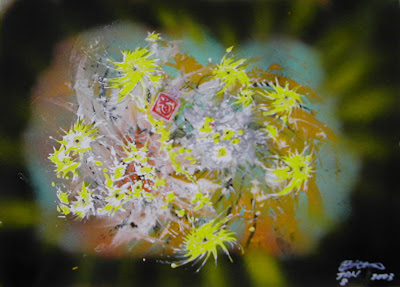
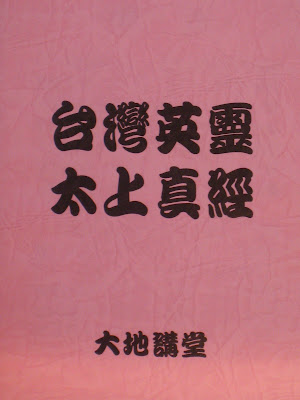

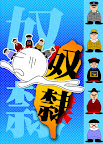
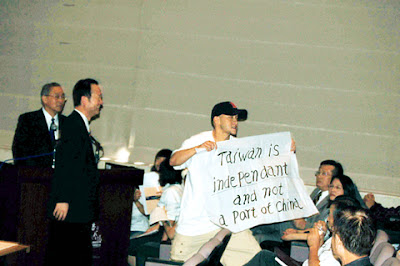



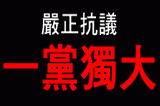
0 Comments:
Post a Comment